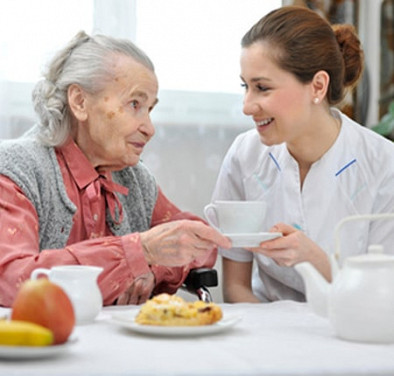A stroke is a life-altering event that can affect an individual's physical, cognitive, and emotional well-being. While the journey to recovery can be challenging, rehabilitation therapy and a strong support network play pivotal roles in helping stroke survivors regain their independence and improve their quality of life.

Acute care:
The initial response to a stroke focuses on stabilizing the individual and minimizing brain damage. This phase includes thrombolytic therapy, clot removal procedures, and monitoring in a specialized stroke unit.
Rehabilitation:
Find YOUR ideal care home NOW!
Rehabilitation therapy is pivotal for stroke recovery and typically begins soon after the acute phase. It aims to restore lost functions, adapt to disabilities, and enhance overall well-being through tailored interventions.
Role of rehabilitation therapy:
- Physical therapy (PT): Addressing mobility, balance, and strength deficits to prevent complications like muscle atrophy.
- Occupational therapy (OT): Facilitating independence in daily activities such as dressing and cooking through adaptive strategies.
- Speech therapy (ST): Improving communication skills and reducing swallowing difficulties common post-stroke.
Importance of a supportive network:
Recovery is not solitary; it requires a strong support system encompassing family, friends, and healthcare professionals.
- Emotional support: Providing a safe space for expression, encouragement, and combating depression and anxiety.
- Caregiver support: Offering assistance with daily care, transportation, and accessing resources like support groups.
- Community reintegration: Encouraging engagement in social activities and hobbies to combat isolation.
- Advocacy: Assisting with accessing necessary services and navigating healthcare systems.
Stroke recovery is a complex journey that requires patience, dedication, and a multi-faceted approach. Rehabilitation therapy, including physical, occupational, and speech therapy, is instrumental in helping stroke survivors regain lost functions and adapt to life after a stroke.
Equally important is the presence of a supportive network that provides emotional support, caregiving assistance, and advocacy.
With the right resources and a strong support system, stroke survivors can maximize their recovery potential and achieve a better quality of life after facing this life-altering event.
Timeline for Stroke Recovery
| Stage | Time After Stroke | Recovery Focus |
|---|---|---|
| Immediate Care | First 24 hours to a few days | Medical stabilization and acute care |
| Early Rehabilitation | First few weeks to months | Physical, occupational, and speech therapy |
| Functional Recovery | 3 months to 1 year | Regaining independence and normal daily activities |
| Long-Term Adaptation | 1 year onward | Ongoing therapy and monitoring, quality of life improvement |
If you want to know more about the role of caregivers in the aging population click here.
We are here to help you choose a care home or facility best suited to your needs. Do not hesitate to contact us on the following number: 0230 608 0055 or fill out this form.
Q&A:
1. What is the typical timeline for stroke recovery?
The recovery process varies by individual, but the typical timeline includes the following stages:
- Immediate Care: First 24 hours to a few days (medical stabilization)
- Early Rehabilitation: First few weeks to months (physical, occupational, and speech therapy)
- Functional Recovery: 3 months to 1 year (regaining independence)
- Long-Term Adaptation: 1 year onward (ongoing therapy and improvement in quality of life)
2. How long does the early rehabilitation phase last?
The early rehabilitation phase generally lasts from a few weeks to several months, focusing on physical, occupational, and speech therapy to regain basic functions.
3. When can I expect to regain full independence after a stroke?
Functional recovery usually starts within 3 months and can continue up to 1 year, with the aim of regaining independence in daily activities like walking, dressing, and eating.
4. Is stroke recovery complete after the first year?
While the majority of recovery occurs within the first year, long-term adaptation can continue indefinitely. Ongoing therapy, regular check-ups, and maintaining a healthy lifestyle contribute to sustained improvement.
5. How does the stroke's severity affect the recovery timeline?
The severity of the stroke plays a significant role in the recovery process. Severe strokes may result in longer recovery periods, more intensive rehabilitation, and the possibility of ongoing support for the rest of the individual's life.
6. What factors impact the recovery timeline?
Factors such as age, overall health before the stroke, the speed of receiving medical care, the type of stroke, and the presence of any other health conditions can influence the recovery timeline.
7. Can telemedicine speed up stroke recovery?
Telemedicine can assist in stroke recovery by providing timely consultations, ongoing monitoring, and remote rehabilitation, making recovery more efficient, especially in underserved areas.
8. How often should follow-up appointments be scheduled during stroke recovery?
Follow-up appointments should be scheduled regularly during the early stages of recovery, typically monthly or as recommended by your healthcare provider. After the first year, visits may become less frequent but still important for ongoing monitoring.
9. Are there long-term effects of stroke that can impact recovery?
Yes, long-term effects like cognitive deficits, paralysis, speech difficulties, and emotional changes may persist, but continued rehabilitation, therapy, and support can significantly help improve or manage these conditions.
10. Can I make lifestyle changes to improve my recovery?
Absolutely! Adopting a healthy lifestyle with a balanced diet, regular exercise, and stress management can help improve stroke recovery. Avoiding smoking, managing blood pressure, and maintaining a healthy weight are also crucial.
Need help finding a care home?
Senior Home Plus offers free personalized guidance to help you find a care facility that suits your health needs, budget, and preferred location in the UK.
Call us at 0203 608 0055 to get expert assistance today.
Do you need a care home for yourself or your loved one?
Search for Care Homes by Region in the UK
| East Midlands | Eastern | Isle of Man |
| London | North East | North West |
| Northern Ireland | Scotland | South East |
| South West | Wales | West Midlands |
| Yorkshire and the Humber |

